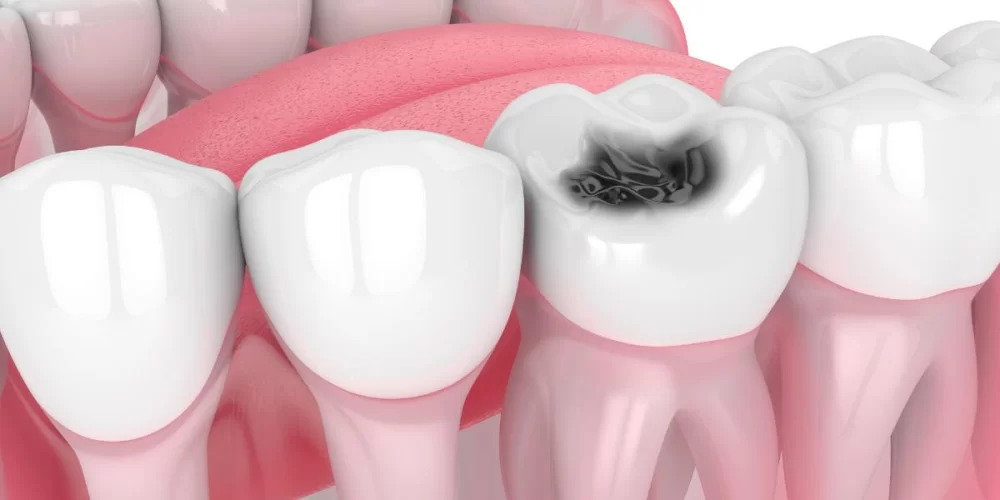
Essential Answers to Common Questions About Dental Cavities
- What Causes Dental Cavities?
- Early Signs and Symptoms of Cavities
- Best Ways to Prevent Cavities
- Effective Treatments for Dental Cavities
- Can Cavities Heal on Their Own?
- When to See a Dentist for a Cavity
What Causes Dental Cavities?
Cavities, also known as tooth decay, are caused by a combination of factors, including bacteria, poor oral hygiene, frequent snacking, and sugary drinks. When food particles and sugars remain on the teeth, bacteria in the mouth produce acids that gradually break down the enamel, leading to cavities.
Genetics can also play a role in cavity formation. Some people naturally have stronger enamel, while others may be more prone to decay despite good oral hygiene practices.
Early Signs and Symptoms of Cavities
Recognizing cavities early can help prevent further damage. Common signs include:
- Tooth Sensitivity: A sharp pain or discomfort when consuming hot, cold, or sweet foods.
- Visible Holes or Dark Spots: Small pits or discoloration on the surface of the tooth.
- Persistent Toothache: A lingering ache, especially when biting down.
- Bad Breath: Bacteria buildup can cause chronic bad breath, even after brushing.
Best Ways to Prevent Cavities
Preventing cavities involves maintaining good oral hygiene and healthy eating habits. Key preventive measures include:
- Brushing and Flossing: Brush twice a day with fluoride toothpaste and floss daily to remove plaque.
- Regular Dental Checkups: Visit your dentist at least twice a year for cleanings and examinations.
- Fluoride Treatments: Using fluoride toothpaste or mouthwash can help strengthen tooth enamel.
- Healthy Diet Choices: Reduce sugar intake and eat calcium-rich foods for stronger teeth.
Effective Treatments for Dental Cavities
Once a cavity develops, treatment is necessary to prevent further decay. Common treatments include:
- Dental Fillings: The most common solution, where decayed material is removed and replaced with a filling.
- Fluoride Treatments: In the early stages, fluoride can help remineralize the enamel and stop decay.
- Dental Crowns: If the decay is extensive, a crown may be needed to restore the tooth.
- Root Canal Therapy: If the cavity reaches the tooth’s nerve, a root canal may be necessary to save the tooth.
Can Cavities Heal on Their Own?
Many people wonder if cavities can heal naturally. In the earliest stage, demineralization can be reversed with fluoride treatments and good oral hygiene. However, once a cavity has formed, professional treatment is required to restore the tooth and prevent further damage.
When to See a Dentist for a Cavity
If you experience tooth sensitivity, persistent pain, or visible decay, it’s important to see a dentist as soon as possible. Delaying treatment can lead to more serious dental problems, including infections and tooth loss.
Taking proactive steps toward dental care can help you maintain a healthy smile for years to come. If you suspect a cavity, schedule a dental checkup today to keep your teeth in the best possible shape!







 Johnston Dental Group | Dentists in Johnston RI | DMD4.0 (251 review)
Johnston Dental Group | Dentists in Johnston RI | DMD4.0 (251 review) SmileLine Dental: Dr. Geeta Choudhary, DDS4.0 (87 review)
SmileLine Dental: Dr. Geeta Choudhary, DDS4.0 (87 review) Equitas Health Short North Medical Center3.0 (96 review)
Equitas Health Short North Medical Center3.0 (96 review) Greencastle Dental4.0 (653 review)
Greencastle Dental4.0 (653 review) Dentistry at Greenway4.0 (121 review)
Dentistry at Greenway4.0 (121 review) Dr. David Miller DDS5.0 (1 review)
Dr. David Miller DDS5.0 (1 review) The Importance of Oral Health Education During Pregnancy for a Healthy Pregnancy
The Importance of Oral Health Education During Pregnancy for a Healthy Pregnancy Best Tips for Brushing Your Teeth Properly for Healthy Gums: Essential Techniques for Oral Health
Best Tips for Brushing Your Teeth Properly for Healthy Gums: Essential Techniques for Oral Health Why Skipping Dental Checkups Can Lead to Bigger Oral Health Problems
Why Skipping Dental Checkups Can Lead to Bigger Oral Health Problems Advantages of Porcelain Dental Restorations
Advantages of Porcelain Dental Restorations How Can Diabetes Cause Tooth and Gum Problems? Preventing and Managing Oral Health Issues
How Can Diabetes Cause Tooth and Gum Problems? Preventing and Managing Oral Health Issues Healthy Habits for Promoting Good Oral Health and Hygiene: Tips for a Healthy Smile
Healthy Habits for Promoting Good Oral Health and Hygiene: Tips for a Healthy Smile